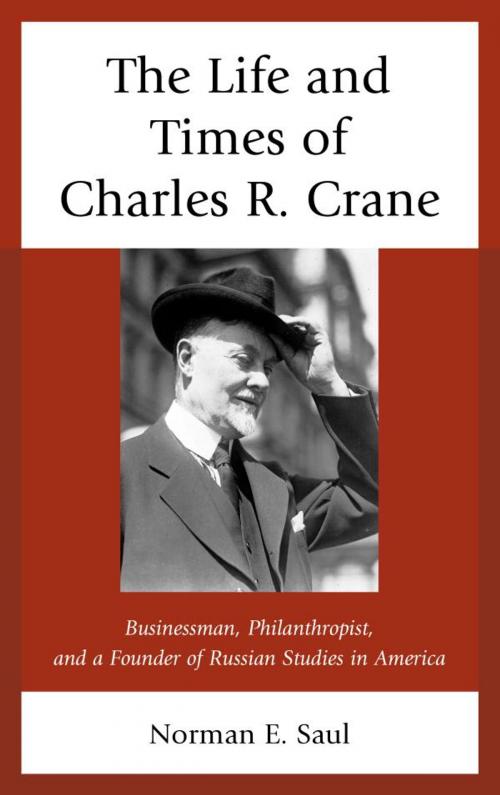The Life and Times of Charles R. Crane, 1858–1939
American Businessman, Philanthropist, and a Founder of Russian Studies in America
Nonfiction, History, Asian, Russia, Biography & Memoir, Business, Americas, United States, 19th Century| Author: | Norman E. Saul | ISBN: | 9780739177464 |
| Publisher: | Lexington Books | Publication: | December 21, 2012 |
| Imprint: | Lexington Books | Language: | English |
| Author: | Norman E. Saul |
| ISBN: | 9780739177464 |
| Publisher: | Lexington Books |
| Publication: | December 21, 2012 |
| Imprint: | Lexington Books |
| Language: | English |
In The Life and Times of Charles R. Crane, Norman E. Saul analyzes the contributions of Charles R. Crane, world traveler, businessman, diplomat, and philanthropist in the setting of his times. Crane acquired his appreciation for Russian culture and life through travel in the country, making a total of twenty-four trips to Russia. He developed friendships and professional relationships with many prominent Russians in political, cultural, and artistic spheres in addition to his connections to important figures in American history such as Woodrow Wilson. As the son of a Chicago industrialist with little formal education, Charles R. Crane enjoyed remarkable success serving as a financial backer and advisor to the Woodrow Wilson administration, founding member of the 1917 Root Commission to Russia, minister to China, and establishing a factory in Russia to manufacture air brakes for the Russian railroad. He devoted a considerable amount of his own time and resources to educating Americans about the Russian people. He sponsored visiting lecturers, subsidized publications, and commissioned works by Russian artists.
Charles Crane was arguably the first true American globalist. His activities involved Russia, China, and the Middle East, but Saul emphasizes his travels in Russia and his role in the development and promotion of Russian studies in America. Crane represented the United States becoming a world power in business and diplomacy, and fostered an American appreciation and knowledge of Russian, Asian, and Middle Eastern societies. By studying this unusual man, Saul explores the world in which he lived and traveled. The relationship between America and Russia has always been a complex and fascinating one, and Saul shines light on a pivotal period in that relationship.
In The Life and Times of Charles R. Crane, Norman E. Saul analyzes the contributions of Charles R. Crane, world traveler, businessman, diplomat, and philanthropist in the setting of his times. Crane acquired his appreciation for Russian culture and life through travel in the country, making a total of twenty-four trips to Russia. He developed friendships and professional relationships with many prominent Russians in political, cultural, and artistic spheres in addition to his connections to important figures in American history such as Woodrow Wilson. As the son of a Chicago industrialist with little formal education, Charles R. Crane enjoyed remarkable success serving as a financial backer and advisor to the Woodrow Wilson administration, founding member of the 1917 Root Commission to Russia, minister to China, and establishing a factory in Russia to manufacture air brakes for the Russian railroad. He devoted a considerable amount of his own time and resources to educating Americans about the Russian people. He sponsored visiting lecturers, subsidized publications, and commissioned works by Russian artists.
Charles Crane was arguably the first true American globalist. His activities involved Russia, China, and the Middle East, but Saul emphasizes his travels in Russia and his role in the development and promotion of Russian studies in America. Crane represented the United States becoming a world power in business and diplomacy, and fostered an American appreciation and knowledge of Russian, Asian, and Middle Eastern societies. By studying this unusual man, Saul explores the world in which he lived and traveled. The relationship between America and Russia has always been a complex and fascinating one, and Saul shines light on a pivotal period in that relationship.















